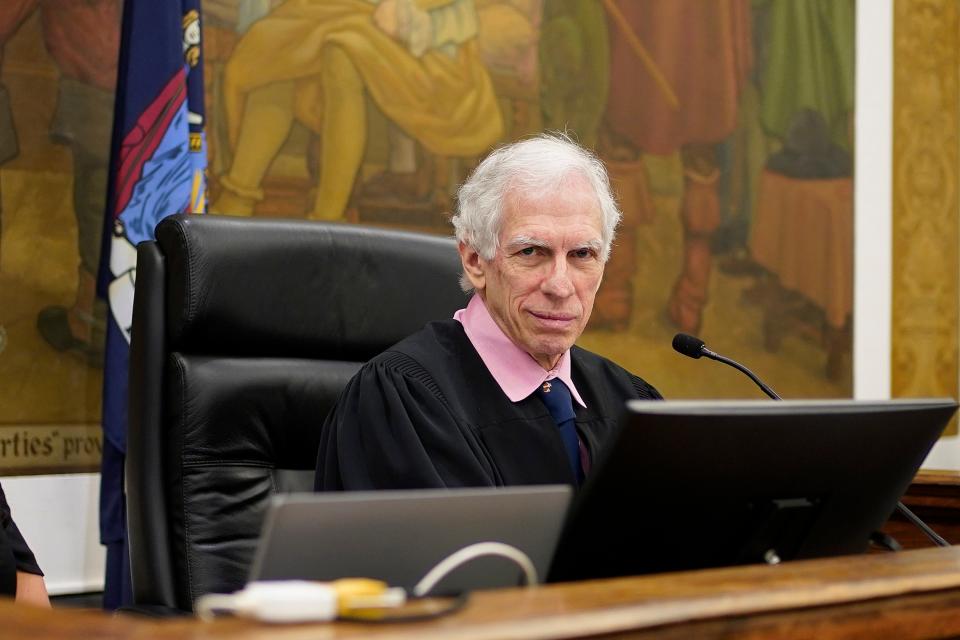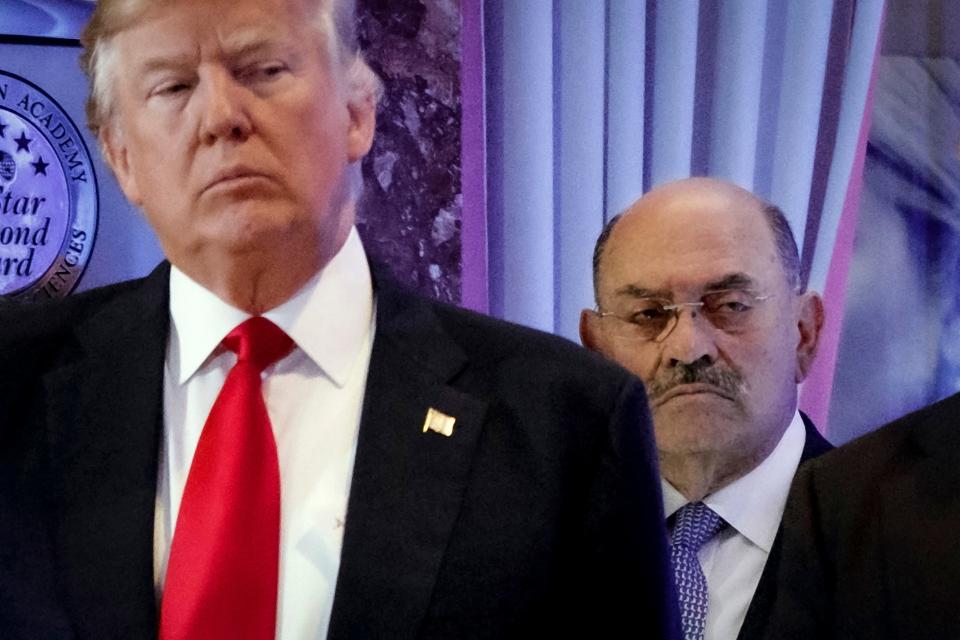Did a witness in Trump's fraud case lie under oath? A New York judge wants answers.
- Oops!Something went wrong.Please try again later.
- Oops!Something went wrong.Please try again later.
The New York judge in Donald Trump’s civil fraud trial ordered lawyers from the state attorney general’s office and Trump’s defense team to explain by Wednesday what they know about a witness in the case reportedly negotiating a plea deal for lying under oath.
Supreme Court Justice Arthur Engoron is in the midst of deciding the damages Trump and his namesake real estate company should pay, after already ruling they committed repeated fraud in exaggerating property values when applying for loans. Engoron had said he would rule by Jan. 31, but postponed the decision until mid-February.
The New York Times reported Friday that Trump’s former chief financial officer, Allen Weisselberg, was negotiating with Manhattan District Attorney Alvin Bragg’s office over a potential plea bargain for perjury in this case.

On Monday, in a note to lawyers published in the court docket Tuesday, Engoron asked lawyers for both sides in the case to submit letters “detailing to me anything you know about this that would not violate any of your professional ethics or obligations.” Engoron said in deciding the case he must know whether Weisselberg was credible as a witness.
“As the presiding magistrate, the trier of fact, and the judge of credibility, I of course want to know whether Mr. Weisselberg is now changing his tune, and whether he is admitting he lied under oath in my courtroom at this trial,” Engoron wrote. “I do not want to ignore anything in a case of this magnitude.”
Weisselberg already served 100 days in jail last year for avoiding taxes on $1.7 million in compensation from the Trump Organization and he is still on probation.
Weisselberg had testified in this trial about the former president falsely claiming his apartment in Trump Tower was three times larger than it was, resulting in $200 million overstatement of its value.
The New York Times didn't specify what perjury was alleged. But after Weisselberg's October testimony, an article in Forbes magazine argued he lied about not being involved in how the value was set, based on previous interviews he had given the magazine.
Engoron said if Weisselberg perjured himself, the judge could use that as a reason to discount all of his testimony. Engoron said while the news article focused on Trump's penthouse, Weisselberg's testimony on "other topics could also be called into question."
News reports didn't explain what prosecutors might consider lies in Weisselberg's testimony. But if Weisselberg's testimony benefitted Trump, such as when he described disputes about the value of an office and retail complex at 40 Wall St., throwing out that testimony could hurt Trump and potentially lead to higher damages.
Lawyers have until 5 p.m. Wednesday to reply to the judge.

New York Attorney General Letitia James is seeking $370 million in damages from Trump, his two eldest sons, his company and two company officials. James also seeks to block Trump from doing business in the state.
Engoron already ordered the cancelation of Trump's business certificates, but that decision is on hold while Trump appeals. Trump has also vowed to appeal damages Engoron eventually sets.
Trump and his lawyers contend there were no victims in the case because banks were repaid with interest. Trump argued the Democratic attorney general and judge were persecuting him politically.
Engoron's ruling will come on the heels of a federal jury ordering Trump to pay $83.3 million to columnist E. Jean Carroll for defamation.
This article originally appeared on USA TODAY: Trump fraud case: NY judge asks lawyers about witness perjury

